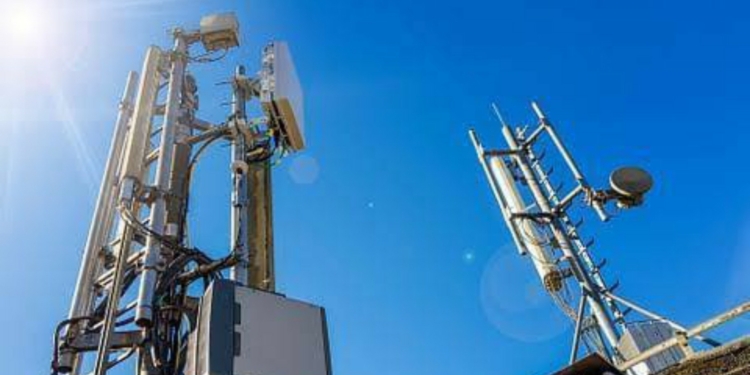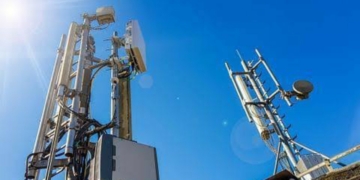The Federal government through the Nigerian Communications Commission, NCC, has further enlightened Nigerians on the benefits of the controversial Fifth Generation mobile network, 5G, to their lives, business, economy and general wellbeing.
The Commission said that the country cannot shy away from the 5G while the rest of the world is leaving it behind.
The NCC, in a statement made available on Thursday, said it was working with various stakeholders currently towards developing a policy document that will provide guidance and policy direction for 5G deployment in the country, adding that, “We have moved from 0% to 1G, 2G, 3G and 4G. The next frontier is 5G.”
While highlighting the benefits, the Commission explained that the 5G is a new global wireless standard after 1G, 2G, 3G, and 4G networks, which enables a new kind of network that is designed to connect virtually everyone and everything together, including machines, objects, and devices.
It stressed that “5G wireless technology is meant to deliver higher data speeds, ultra-low latency, more reliability, massive network capacity, increased availability, and a more uniform user experience to more users.
“5G has the potential to provide 20X faster data speeds and carries a massive amount of data for a large number of simultaneous users. So users in high-density areas – like airports, stadiums or urban areas – can still experience the fast speeds and low latency of 5G service.
“As the world replaces more and more household items with ‘smart devices’ that connect to the internet, also known as the Internet of Things, this network capacity will be critical. 5G will potentially be able to handle more than 2.5 million connected devices per square mile. 5G is a transformational change from 4G.
“5G will enhance technological development because of the extremely fast transfer rate of large quantities of data. Overall, it enables interconnected devices for instant communication. This is a new connected world of ‘Smart cities’ made possible by 5G networks.
“5G is extremely fast: it supports data transfer rates of up to 20Gbit/s, if supported by robust fibre infrastructure. On top of that, wireless data delays drop to one millisecond. This opens up the potential for multiple driverless cars, where large quantities of potentially lifesaving data have to be transferred almost instantaneously.
“5G network is designed to carry data up to 10 times faster than 4G networks. This means HD movies can be downloaded in seconds.
“5G tops out at 10 gigabits per second (Gbps). 5G is 10 to x100 faster than 4G.The use of shorter frequencies (millimeter waves between 30GHz and 300GHz) for 5G networks is the reason why 5G is so fast.
“5G has been deployed commercially and in use in some countries. As with the previous technologies, the International Commission for Non-ionizing Radiation Protection (ICNIRP) has classified radiation from 5G as non-ionizing and therefore safe for human beings.
“5G represents the future. While we have made tremendous progress since the advent of the global system of mobile communication (GSM) in Nigeria, 5G will be the bedrock of future communications.
“According to GSMA’s Policy Position on 5G spectrum, ‘5G is expected to support significantly faster mobile broadband speeds and lower latencies than previous generations while also enabling the full potential of the Internet of Things.’
“5G will revolutionize and transform our way of life. From education to agriculture, security to entertainment and governance in general. On education, 5G will transform our educational system. The availability of a fast wireless network will enable virtual learning.
“For our educators, 5G will empower them to reimagine what is possible inside and outside their classrooms. The ability to download high quality and feature-length documentary in seconds, hosting a guest speaker via hologram or tutoring students virtually in real-time will speak to a 5G powered Nigeria.
“Artificial intelligence (AI) is set to revolutionise healthcare. 5G will make it easier to determine potential diagnosis and decide on the best treatment plan.
“By moving to 5G networks, healthcare organisations can use the AI tools they need to provide the best care possible – from wherever they are in the hospital or clinic.
“5G will support businesses’ innovative ambitions and create new markets, transforming supply chain management and creating smarter, more efficient manufacturing. It is also a fundamental platform for the Internet of Things (IoT) — the rapidly expanding number of devices that collect transmit and share data via the internet.
“Studies have shown that by the end of 2020 more than half of all new businesses will rely on the “IoT” to cut costs, build efficiencies, and grow their bottom lines. However, many of the innovations 5G technology will fuel literally may not be available yet especially in Nigeria. For the “IoT” to realise its limitless potential, 5G is critical.
“5G will allow us to stream, download, and upload huge quantities of data at a much faster rate than we are currently able to. This means higher definition video either from TV or using video conferencing. Additionally, 5G is designed to facilitate a wealth of new applications for wireless technologies.
“Driverless cars and drones will be able to safely and near-instantaneously send and receive information about their surroundings that will allow them to operate safely.
“Immersive virtual and augmented realities will become increasingly feasible experiences as the large quantities of data associated with HD graphics and processing external data can be transferred between devices accurately and quickly.
“Artificial Intelligence can help predict which patients are more likely to have postoperative complications, allowing healthcare systems to provide early interventions when necessary.
“Mobile augmented reality (AR) shopping experiences will revolutionise retail, with customers able to visualize products in a local environment. In-store, AR will enable shoppers to view additional information on a product simply by pointing their phones at it.
“A key benefit of 5G could be helping businesses work more quickly and more efficiently – in turn, saving costs and increasing revenue.
“Many countries are looking to 5G to better connect rural communities, allowing more people to start businesses from home and opening up opportunities.
“The shift from hardware to a software-based network environment will bring about lower overheads for mobile operators. Those savings will, in turn, be able to be passed on to business customers.
“With network slicing, it will be possible for a business to own their own private 5G network, precisely set up according to its specific business needs. 5G will certainly have much greater capacity across a much wider range of spectrums, but it will also use that space more intelligently, assigning only the resources necessary for each application.
“Generally, Quality of Experience (QoE) by users of telecoms will improve significantly with 5G just as there has been improvement in speed and user experience from the evolutionary shift from 1G, 2G,3G and current 4G in the country.
“What will 5G do: With 5G, we would have connected cities. In the area of transport and infrastructure, we would have Smart cars, car to car communications, smart parking, traffic decongestion and smart grids amongst others.
“We can have large scale events with thousands of users connected. Improved residential connections, smart energy and smart homes, e-health for health care and hospitals. Smart farms, Smart utilities, Remote management and Multi hop.
Features of 5G:
· Faster response time
· Very high capacity
· More software options to upgrade
· Ubiquitous connectivity
· Wide range of applications
· Speed up to 10Gbit/s
· Virtually ‘0’ latency
· 100 times more devices.
Benefits of 5G to Internet of Things:
· Deep coverage – to reach challenging locations.
· Ultra low energy- 10+ years of battery life.
· Ultra-low complexity- 10s bits per second.
· Ultra-low high density -1 million nodes per km2.”






Discussion about this post